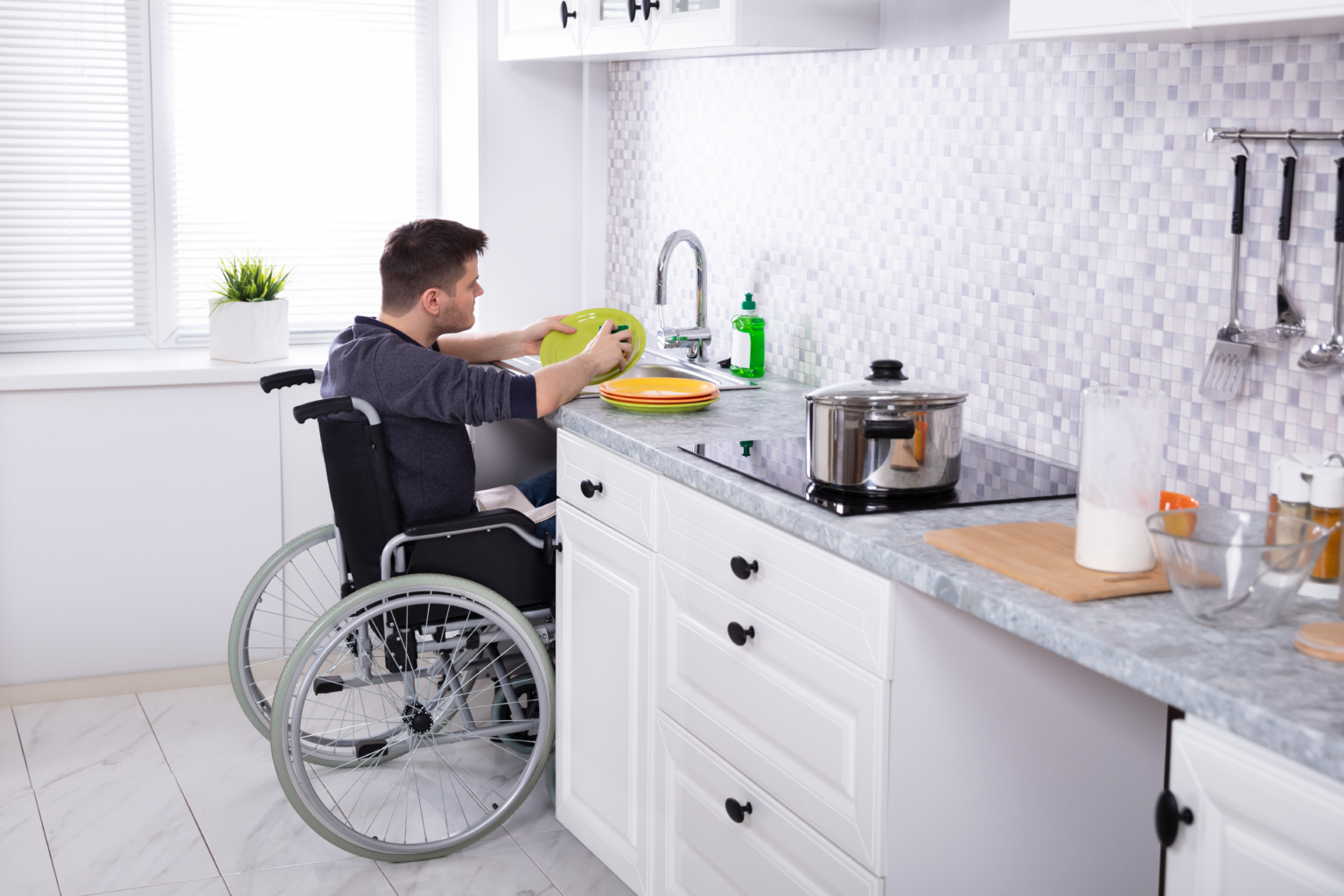How the NDIS Helps with Housing
The National Disability Insurance Scheme (NDIS) provides comprehensive support for Australians living with disabilities. It aims to improve their quality of life by funding tailored services and resources. One of these facets is providing funding for housing-related needs like home modifications or accommodation.
The purpose of these housing supports is to enhance the lives of people with disabilities by providing them with appropriate support and to:
- promote independence
- improve quality of life for participants
- improve community participation and inclusion
- provide tailored support.
Why the NDIS helps with housing
Accessible and suitable housing is important for enhancing independence and overall quality of life for people with disabilities. It ensures participants can live safely, engage in their local communities, and access the support they need.
Ways the NDIS Helps with Housing
The NDIS offers various types of housing assistance to meet the diverse needs of people with disabilities. These supports ensure that individuals have safe, accessible homes that foster independence and enhance their quality of life.
The most common NDIS housing supports include:
- Specialist Disability Accommodation (SDA), where homes are designed with features for those who require significant support due to high or complex needs.
- Supported Independent Living (SIL), where participants are supported with daily tasks and living within shared housing, promoting greater independence for those needing regular support.
- home modifications which are funded changes like ramps and accessible bathrooms to make existing homes safer and easier to navigate.
- Medium-term Accommodation (MTA), which is a housing support for participants transitioning to a more permanent living arrangement.
- Short-term accommodation (STA), which covers short stays that provide respite care and an opportunity to develop new skills and social connections.
- Individualised Living Options (ILO), where participants have unique living arrangements based on their specific needs such as living with friends, family, or other participants.
5 Types of NDIS Housing Supports & Benefits of Each
Specialist Disability Accommodation (SDA)
Specialist Disability Accommodation (SDA) provides purpose-built homes designed for people with significant functional impairments or very high support needs. It caters to individuals who require intensive assistance due to their disabilities.
SDA homes have features like wheelchair accessibility, reinforced walls for safety equipment, and smart home technology to enhance the residents’ comfort and safety. Typically, SDA homes are:
- designed to accommodate mobility aids, making movement easier and safer.
- built with features that cater to the specific needs of each resident, helping them receive personalised care more efficiently.
- planned with layouts and supports allowing residents to live as independently as possible while still having access to round-the-clock assistance.
- located in neighbourhoods that promote social inclusion and enable residents to engage with the local community.
SDA ensures that people with high support needs can live in environments designed to meet their requirements, helping them lead safer and more fulfilling lives.
Supported Independent Living (SIL)
Supported Independent Living (SIL) is a form of assistance that helps people with disabilities manage everyday tasks in shared housing environments. This can include help with:
- personal care activities like showering, dressing, and personal hygiene.
- support with cooking and meal planning to ensure participants have healthy, balanced meals.
- help with cleaning, laundry, and other household maintenance tasks.
- encouraging participants to build their skills in budgeting, personal organisation, and social interaction.
SIL enables people with disabilities to live more independently while still having access to the help they need for everyday tasks. This typically includes:
- promoting independence as participants receive support tailored to their needs, empowering them to handle tasks with less assistance over time.
- living with others in a shared housing setup promotes social connections and provides a sense of belonging.
- reliable support for daily activities, participants can focus on their personal goals and engage more with their community.
Home Modifications
Home modifications are changes made to a participant’s existing home to improve accessibility and safety, allowing them to live more comfortably and independently. These adjustments help ensure that the home environment suits the person’s specific needs and challenges.
Some examples of home modifications that could be provided under NDIS housing supports include:
- installing ramps instead of stairs or steps makes it easier for people using wheelchairs or walkers to enter and move around the house.
- widening doorways provides better access for mobility devices like wheelchairs.
- adding handrails in hallways or grab bars in bathrooms improves stability and reduces the risk of falls.
- bathroom changes like walk-in showers, lower sinks, or non-slip flooring make bathrooms safer and more usable.
- installing devices like automated door openers or voice-activated lights can give participants more control over their environment.
These modifications are designed to make homes safer and more navigable, reducing barriers that participants may face in their daily lives.
Medium-Term Accommodations (MTA)
Medium-Term Accommodation (MTA) is a temporary housing solution for NDIS participants who need a place to stay while waiting for their permanent accommodation to become available. This support is typically required when:
- participants leaving the hospital may need interim accommodation before moving to their long-term home.
- those awaiting the completion or availability of Specialist Disability Accommodation (SDA) can stay in MTA.
- changes like moving homes or changes in care needs may require temporary housing.
MTA helps bridge the gap, providing a safe and supportive environment to ease the transition into long-term housing.
Individualised Living Options (ILO)
Individualised Living Options (ILO) are flexible living arrangements tailored to each participant’s needs and preferences. Unlike other structured housing supports, ILO enables participants to choose who they live with and what support they receive. It emphasises offering varied living arrangements such as living:
- alone in situations where participants can receive regular support visits.
- with friends or family
- with host families
- in co-residency housing where support workers may live on-site offering round-the-clock assistance.
ILO arrangements offer flexibility to ensure participants can live in a way that aligns with their goals and lifestyle preferences.
For Help Accessing NDIS Housing Supports
New Growth Care Group is committed to enhancing the lives of people with disabilities by helping them access suitable housing under the National Disability Insurance Scheme (NDIS). Our focus is on empowering participants to lead independent and fulfilling lives with comprehensive assistance with housing support and services related, like:
- Respite/short-term accommodation
- Medium-term accommodation
- Supported independent living
- Specialist Disability Accommodation
- Support coordination
- Household maintenance and cleaning
- Assistance with daily living
- Assistance with social and community participation
We are dedicated to providing holistic support to ensure our participants not only find appropriate housing but also thrive within communities. For more information on our housing support services or to discuss how we can assist you, please contact our friendly and approachable team. We look forward to partnering with you on your journey to more independent living.














